The greatest sports documentaries to get you through the lockdown
The perfect way of killing time while the country goes in to lockdown with live sport off our screens for the weeks and months ahead.
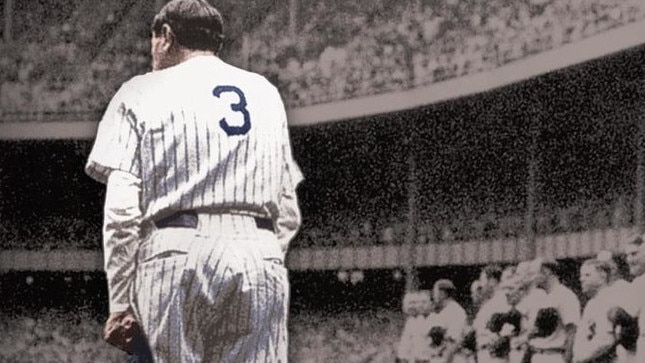
“As many of us hunker down in the days ahead, it’s important that we find things that bring us together, and show us our common humanity.”
So said documentary maker Ken Burns last week as he made his seminal series, Baseball, free for people to watch on the US portal PBS (though Australian audiences will either need to access it via a VPN or pay to download it elsewhere).
The nine-part series originally aired on PBS in September 1994 and charts the history of America’s national pastime, from its birth in the late 1800s up through 1990. With a further ‘10th innings’ added in 2010.
More than just a sporting tour through history, the landmark piece of work uses baseball as a prism through which to view American culture, politics and society across hours and hours of fascinating viewing.
The perfect way of killing time while the country goes in to lockdown with live sport off our screens for the weeks and months ahead. Once you’ve got through that, here are some other classic documentaries to give you your sporting fix.
Murderball (2005)
The name still used by many of its combatants for the sport officially known as wheelchair rugby – follows a couple of seasons in the lives of the US and Canadian national squads.
The cast is a broad palate of personalities, young men who have found themselves wheelchair bound through road accidents, childhood illness or the ravages of war, seeking to channel their competitive spirit in to a sport that offers an opportunity for meaning, comradeship and full blooded action.
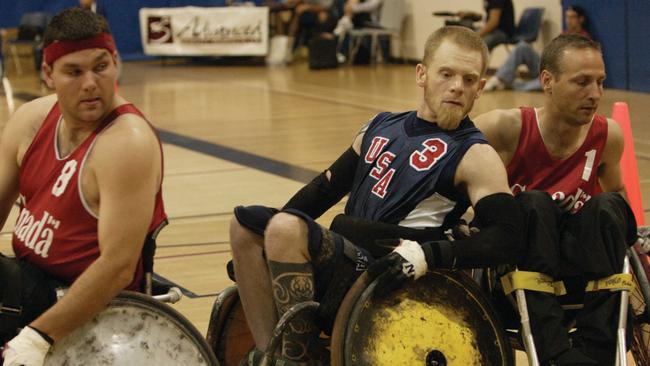
A truly inspirational tale but one that is refreshingly and unapologetically unvarnished. If you are looking for a saccharine, triumph against adversity tale with a neat happy ending, however, this is not for you.
No one in the film is asking for sympathy. From you or their opponents on court.
Endless Summer (1966)
As much an anthropological study and travelogue as surfing documentary, Bruce Brown’s visually beautiful offering stands as a time capsule of a movie, a love letter to the innate wanderlust within all of us, but especially those for whom riding the perfect wave is an obsession.
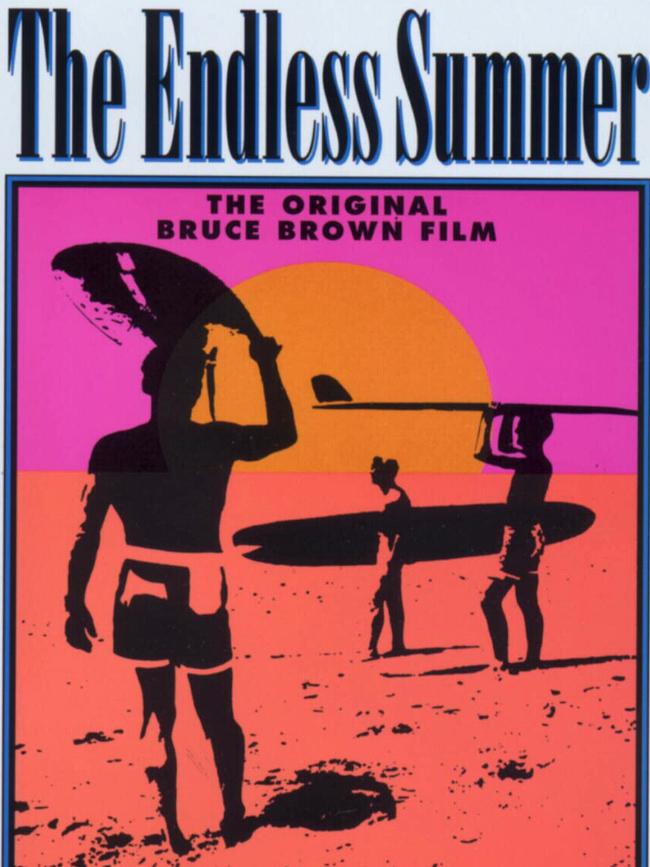
The film follows Brown’s friends, Robert August and Mike Hynson, as they set out to test the theory that, with enough time, devotion – and resources – it is possible to chase the summer around the globe.
Taking their boards through Hawaii, Africa, Australia, Tahiti and beyond, the pair’s natural good humour and charm, as well as the cinematic treat of the backdrops they inhabit, gives the film its core warmth. The pair learn something about themselves, and the world, as they skip from coastline to coastline, but in a gentle non-preachy way that takes the viewer on the glorious journey with them.
A State Of Mind (2005)
A stunning piece of film making through which we are afforded a remarkable and rare view in to the workings of one of the most secretive and unknown states in the world.
In 2003 a BBC crew followed two North Korean schoolgirls as they prepared for that year’s ‘Mass Games’, a huge gymnastics pageant to honour the country’s divine leader, or, as the producers of the documentary themselves explain it, a ‘socialist realism extravaganza and a perfect example of the state’s ideology; the subordination of the individual’s desires for the needs of the collective’.
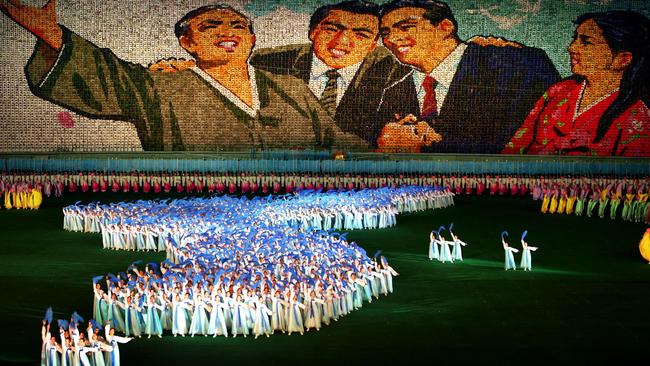
With a backdrop of international concern over the rogue state’s nuclear ambitions, the film crew was granted unparalleled co-operation from the authorities, chaperoned by guides and minders at every turn but with no interference or censorship over the final material.
What we see is a story of the human condition and everyday life in a country about much of what we understand is gleaned through troubling media reports and dark comedy over extreme behaviour. At its heart are two young girls striving to be the best they can in a pursuit that owes as much to artistry and duty as it does sport.
Simply breathtaking on every conceivable level.
When We Were Kings (1996)
The definitive chronicle of the 1974 heavyweight title fight between Muhammad Ali and George Foreman – the Rumble in the Jungle – perfectly captures the personality of both men and the wider significance of the event in both sporting and cultural history.
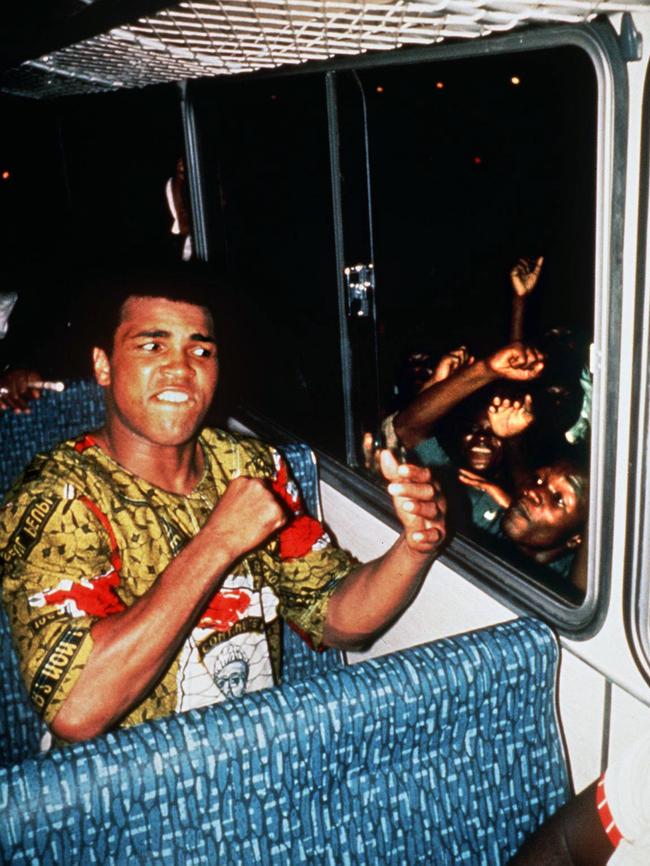
The shining star at its heart, of course, is the charismatic Ali, the fast talking pugilist with dancing feet and film star good looks.
The set piece fight in which Ali went in as a rank outsider but produced one of the most stunning knock out wins in the sport after ‘rope-a-doping’ his more sullen, ungainly opponent, is the focal point, but the glory of the film is in how expertly it captures the mood of the build up.
Leon Gast, the director, shot hundreds of hours of footage before the original backers of the film pulled out. It turned out to be a blessing in terms of the final feature, the delay and search for more funds giving time for retrospective interviews with the likes of heavyweight writers Norman Mailer and George Plimton. The behind the scenes access coupled with contextualisation from those who covered the event gives it a depth and authority that is possibly unmatched in sporting documentaries.
All This Mayhem (2014)
The story of two brothers from suburban Melbourne, Ben and Tas Pappas, whose natural talent saw them explode as a supernova in the sport of skateboarding in the 1990s, even casting shade – albeit briefly – over Tony Hawk. And whose love of excess and self-destructive hedonism saw the dream come crashing down just as quickly, once the subculture they thrived in became corporatised and sanitised in a manner they were unable, or unwilling, to navigate.
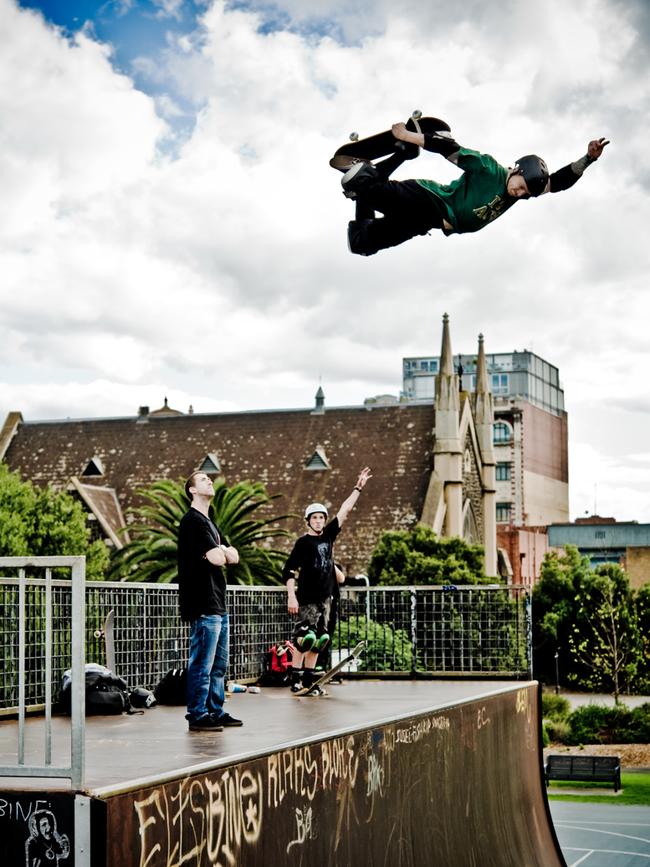
Uplifting and hilarious at times, there is a heavy serving of pathos and, ultimately, heartbreaking tragedy and sadness to the tale, knitted together superbly with first person accounts, competition and raw behind the scenes footage by the same editor that worked on Senna and the Banksy documentary Exit Through the Gift Shop.
“It was a war,” one who was there recalls, “and there were casualties.”
For all the visceral impact of the home movie footage it is the searingly honest reflections of Tas, the older of the two brothers now partially mellowed after a period in prison and a conversion to Christianity, that at turns offers warmth, humour and poignancy to a tale of a fraternal bond tested beyond breaking point by pressures of both their own and others’ making.
An Impossible Job (1994)
The outpouring of love for former England football manager Graham Taylor, who passed away in 2017, was genuine. A true football man without a shred of pretension or malice in his body, he was respected for his honesty and his humour. He had reason to be otherwise.
Absolutely shredded by a vicious English press when he failed to qualify England for the 1994 World Cup finals, the bile and vitriol would have broken most men.
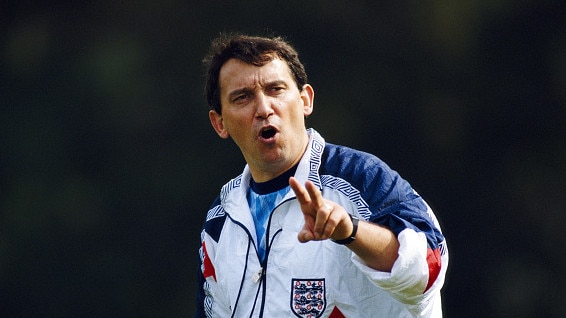
Taylor allowed a Channel Four documentary crew unfettered access to himself and the team during that ill-fated qualifying campaign. The resulting documentary is a warts and all portrait of a man under the pressure of what the English refer to as the hardest job in the country.
There are moments of bumbling comedy, and Taylor spawned a whole lexicon of mangled catchphrases that would forever follow him around. But a rewatching reveals a gentle touch by the filmmakers, rather than exploitation, Taylor shown as simply an ordinary man trying his best but falling short on the field while maintaining his repeatedly tested dignity.
Most revealingly when acting as a father figure to the gifted but troubled Paul ‘Gazza’ Gascoigne, or defending John Barnes, one of a few black players on the team, from racial abuse.
No England manager would dream of inviting cameras in to the inner sanctum in the way that Taylor did today.
Once Brothers (2010)
One of a legion of genre-leading offerings from ESPN’s 30 for 30 series, examining the lives of two friends, Drazen Petrovic, a Croatian, and Vlade Divac, a Serb, members of the Yugoslavian basketball side that won silver at the 1988 Olympics and then two years later claimed the world title ahead of the all-conquering USA.
The pair were drafted by NBA sides, the LA Lakers and Portland Blazers respectively, before civil war broke out in their homeland, splintering families and communities and friendships. As their respective communities fought one of the bloodiest and most bitter modern conflicts, the pair wordlessly faced each other on US courts.
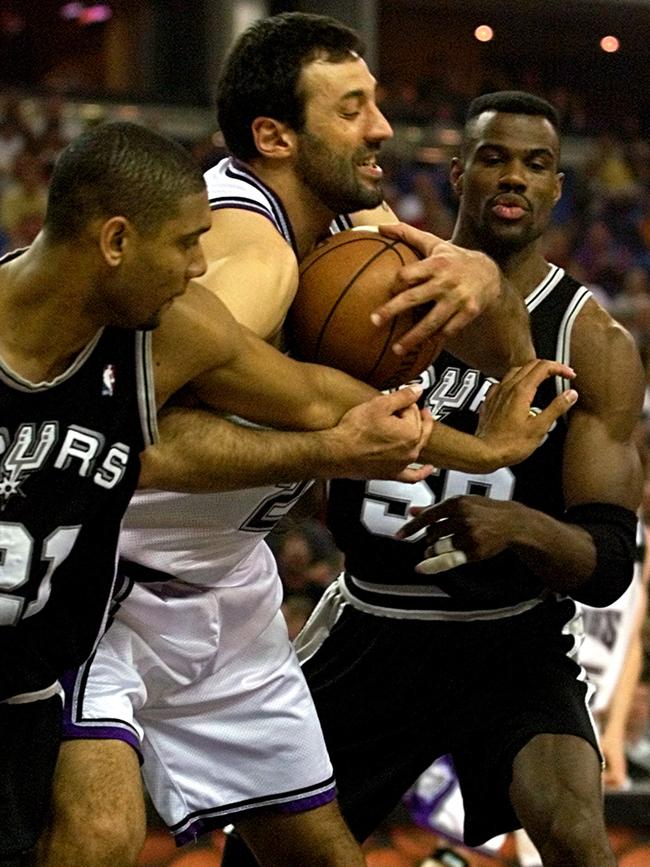
Both men hoped that one day they would be able to resume their kinship, but in June 1993 Petrovic was killed in a car accident.
This stunning piece of investigative work follows Divac’s journey in trying to come to terms with the death of his friend before they had the opportunity to reconcile, through searching out answers as to what became of the pair’s former teammates under the cloud of ethnic conflict.
Divac’s obvious pain at how their lives became uncoupled is visceral and moving and offers a view in to a geopolitical tragedy through a deeply personal prism.
Icarus (2017)
An Oscar-winning documentary that started out as an interesting personal experiment before stumbling in to the middle of a major news story involving state sponsored cheating at the Olympics, murder plots and a host more besides.
Keen amateur cyclist and film director Bryan Fogel’s initial focus for his film was to explore the world of doping in sport by injecting himself with steroids to see if that would help him win races, while remaining undetected.
In that pursuit he made contact with Dr Grigory Rodchenkov of Russia’s anti-doping agency, the same agency that while Fogel was filming was investigated for widespread and systematic doping across a variety of sports.
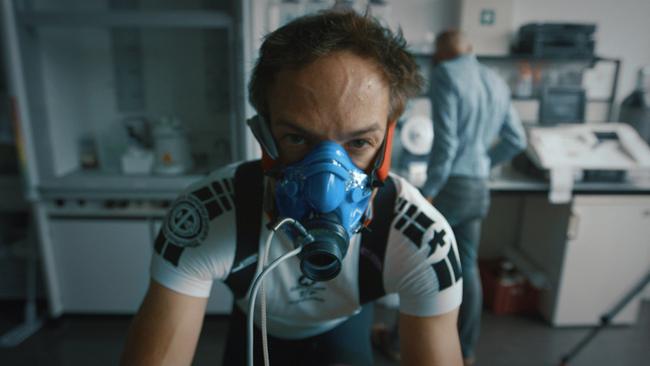
Rodchenkov – who is forced to flee Russia for America fearing for his life, and eventually placed under US protection – is disarmingly candid with Fogel and through his testimony we are given rare insights in to Russia’s steroid program and higher authorities’ efforts to keep it under wraps.
What unfolds then is an engrossing view of the story from accidentally right inside it, with Fogel at time overwhelmed by what he’s stumbled in to, but always skilled enough to take the viewer along with him and tenacious enough to stick with it to reveal more extraordinary details.
It isn’t the feature he set out to make, and it doesn’t answer all the questions you might want to know about doping and Russian skulduggery. But it does deliver extraordinary and unique accessibility to one of the biggest sporting scandals of recent times.
Nine Innings From Ground Zero (2004)
The playing of games at times seems trivial. Never more so, perhaps, than after horrific moments of tragedy and loss of life. And yet, as this HBO documentary so adroitly demonstrates, sport can also act as an agent for the renewal of hope, demonstrate the best qualities of humanity when the worst of it has been endured, and offer a rallying point to which people can cling to the ordinary and mundane to help come to terms with something much larger and more important.
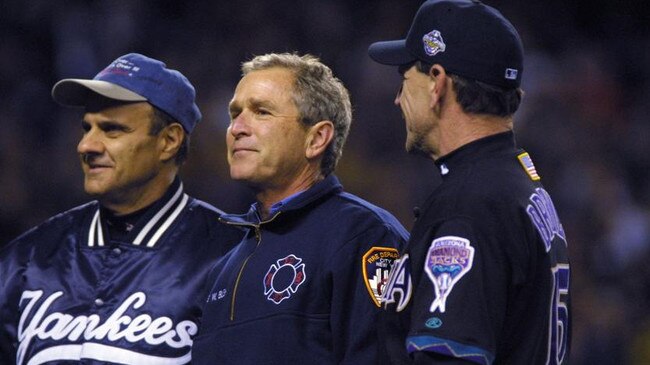
Shortly after the September 11 attacks on the World Trade Center in New York, with the city reeling from the horror of that day, the New York Yankees played in the World Series against the Arizona Diamondbacks in an emotionally charged series of nine games, three of which were to be hosted at Yankee Stadium, less than 10 miles away from the scene of the worst terrorist atrocity on American soil.
What took place over those three nights, and is charted in this film, offered a window in to both collective grief and community resilience. With interviews with leading figures in the sporting and political world, as well as ordinary citizens most touched by events on that day, a picture is painted of sport acting as a catalyst for healing. And reminds us that how we organise ourselves to compete on the playing field is often about so much more than simply who wins and who loses.
The Other Final (2003)
On June 30th, 2002, Brazil met Germany in football’s World Cup final. On the same day, a match was arranged between the two lowest ranking sides in the FIFA family, the Buddhist kingdom of Bhutan and the Caribbean island of Montserat.
Billed as an antidote to the commercialisation of the world’s most popular sport – the film makers dubbed the Brazil-Germany clash as more Nike v Adidas – it was part social experiment, part sporting contest.
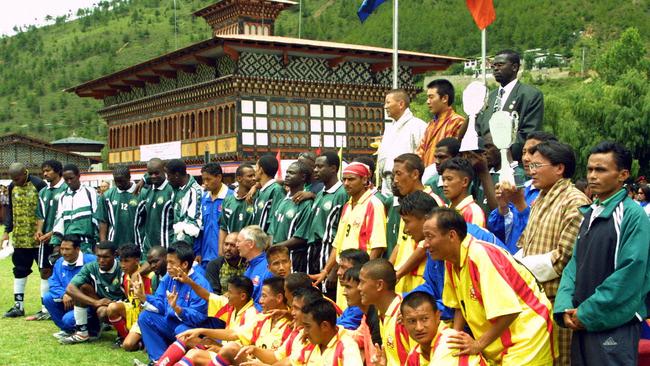
Following both sets of players on the build up to the match it stands as a testament to sport as a facilitator in two cultures colliding in a joyful and compelling fashion. The two countries and sets of players could not be more different. But they share a love of the game as great as their ability to play it is at times comically deficient.
Year Of The Dog (1997)
The documentary that made Terry Wallace’s “I’ll spew up” speech iconic.
In front of filmmaker Micheal Cordell’s cameras, and after an especially deflating defeat to Collingwood in round 17 of the 1996 season, Wallace let loose in a blow up that every fan can relate to.
The Year of the Dogs takes you behind the scenes of a true blue-collar, community football club.
A club on its knees.
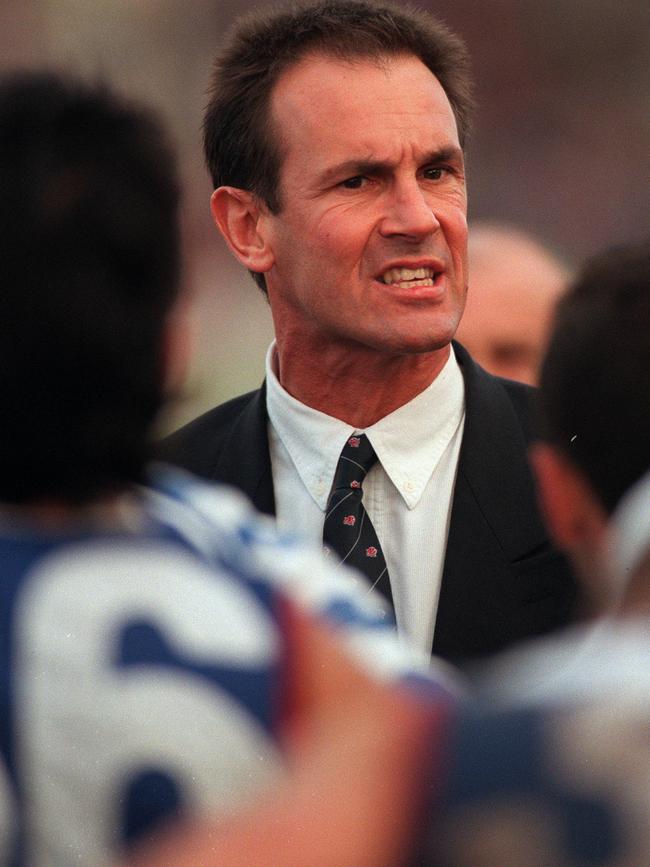
Across a season in which the defeats are many and the wooden spoon is only just avoided there are sackings, resignations, and the constant threat of an unpopular merger being forced upon fans and directors.
Access is complete and uncensored, the rawness of the film giving it heart and authenticity.
What results is a documentary for any sport fans that want something rarely seen in professional sport – a look behind the curtain when times are bad.
Fire In Babylon (2011)
Few teams have dominated their sport with such complete mastery as the West Indian Test side of the 1970s did. This chronicling of that heady time for West Indian cricket captures the sheer, beautiful brutality of that side, captained by first Clive Lloyd, then Viv Richards.
The journey charts the transition from a group of cheerfully unsuccessful exponents of ‘calypso cricket’ to the most feared and aggressive of teams, where fast bowling was a weapon in almost a literal sense. The production is slightly ragged and choppy, but that enhances rather than detracts from the viewing experience, placing you in a period of cricket now distant to today’s slick set up.
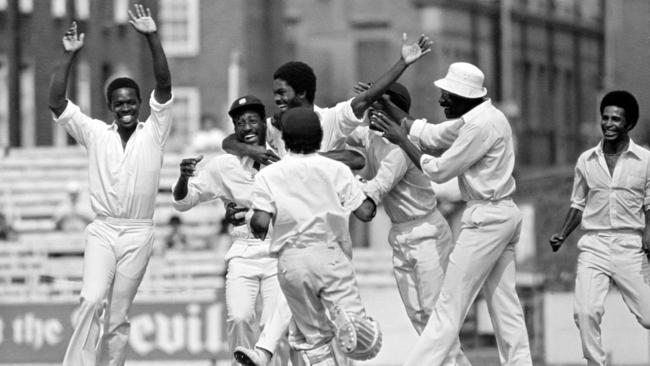
The men at the front line of the revolution offer compelling charismatic recollections – Michael Holding, Gordon Greenidge and Richards men you could listen to for hours without your attention waning a fraction.
The story beyond the ropes, of course, is of a colonial nation rising up to emphatically assert their pride against the initially dismissive English and Australians. The emphasis on the cultural and political significance of the era has drawn light criticism from some of the participants, but remains valid and illuminating to cricket and non-cricket fans alike.
Hillsborough (2016)
A definitive and necessarily harrowing account of the day when 96 innocent men, women and children went to a football match and never came home.
As well as the 27-year campaign for justice after those caught up in the tragedy were vilified by sections of the media and police, let down by authorities and denied dignity at a time when it was needed most.

The events of the day and the burden of the fight for the real truth to be heard are at times difficult to watch, but the voices who speak in this compassionately handled documentary make it vital to do so.
Survivors, bereaved family members – some speaking on camera for the first time – and even police officers contribute to what forms a comprehensive an account of Britain’s worst ever sporting disaster and the impact it continues to have today on the lives of all touched by it.
A Sunday in Hell (En Forarsdag) (2016)
It is not without good reason that the Paris-Roubaix one day cycle race is known as ‘L’Enfer du Nord’ (Hell of the North).
With sections raced over cobbles, when the peloton charges down the narrow lanes you hear them before you see them, the noise of an unearthly hailstorm on tin roofs, or some heavy machinery gouging through sheet metal.
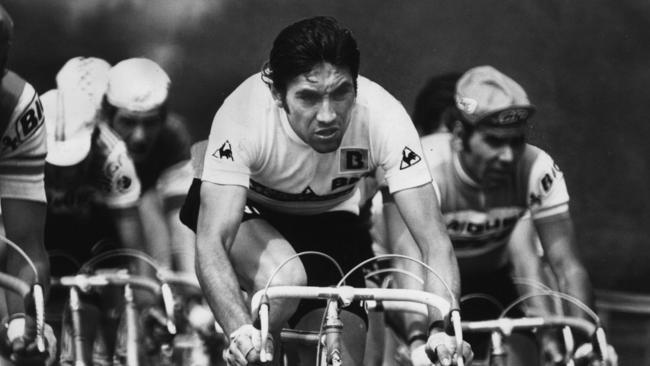
This documentary of the 1976 race features three of the sport’s greatest contesting the title: the legendary Eddie Merckx, Roger de Vlaeminck, a three-time winner, and Freddy Maertens, the leading rider of the time.
The bikes as well as the production levels are far removed from today’s iterations, and it is in that rawness that the exploits of the fearless riders is transmitted.
Sport in all its brutal purity.
Senna (2011)
Director Asif Kapadia draws on a treasure trove of footage, from contemporary newsreel, the Senna family’s home movies and F1 archives, much of it previously unseen, to construct something as close to an action movie as it is a documentary.
A piece of cinema of fascination for both motor racing fans and those for whom the subject matter is unknown.
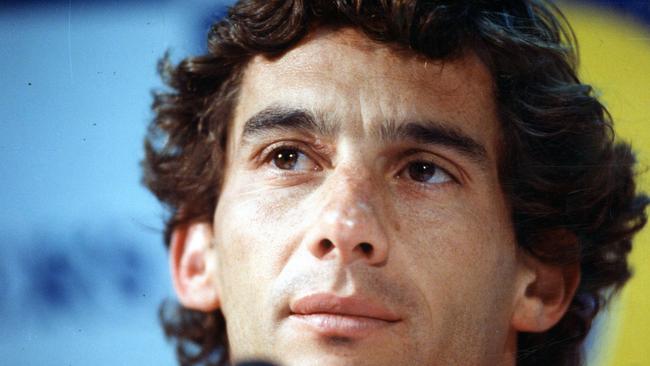
The visual affect is stunning, moving at a pace in step with the speeds Senna himself, we learn, was obsessed with from a young age.
The exploits on the track of the triple world champion are explored, as is his background, the celebrity he achieved at home and beyond, culminating in his tragic death while still a young man.
The style of the film as much as the story it tells places the viewer deep inside the Brazilian’s brief but exceptional life.
Two Escobars (2010)
Infamous drug lord Pablo Escobar and professional footballer Andres Escobar were unrelated. But the two Colombians’ stories were intertwined in a space where sport and crime intersected in a country obsessed by the former and blighted by the latter.
Using a depth of interviews from those who were there, cut with drama-laced archive footage, gives this documentary a powerful authority while dissecting the political and cultural environment both men inhabited, blended with a powerful narrative cadence.
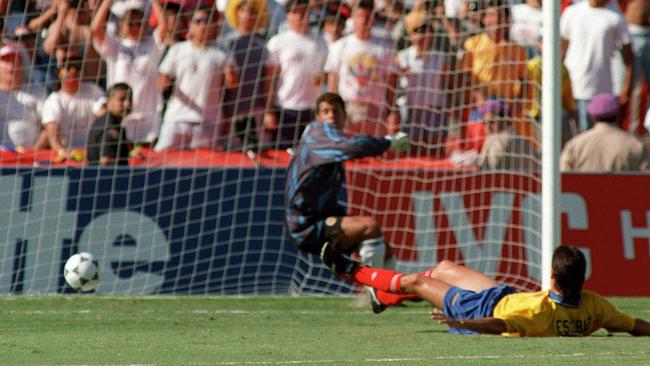
Their paths crossed as Pablo used the football club Andres played for to both bolster his man of the people credentials – as he funded the team’s success – and launder his drug money.
Andres name became know worldwide when a mistake at the 1994 World Cup cost his team in sporting terms and the player his life when members of the underworld Pablo ruled over took extreme vengeance against him.
Filmmakers Jeff Zimbalist and Michael Zimbalist tell both men’s stories in a remarkable way, shedding light on what connected them and what those connections tell you about that troubled time in a nation’s history.
One Day In September (1999)
During the Olympic Games in Munich in 1972, eight members of the Black September terrorist group disguised themselves as athletes, entered the village and took Israeli athletes hostage, demanding the release of hundreds of Palestine prisoners.
Within 24 hours all hostages, a policeman and all but three of the terrorists were dead. The terrifying ordeal of the Israelis and the rank incompetence of the West German authorities played out on international television, while Games organisers incredibly remained reluctant to call off competition.
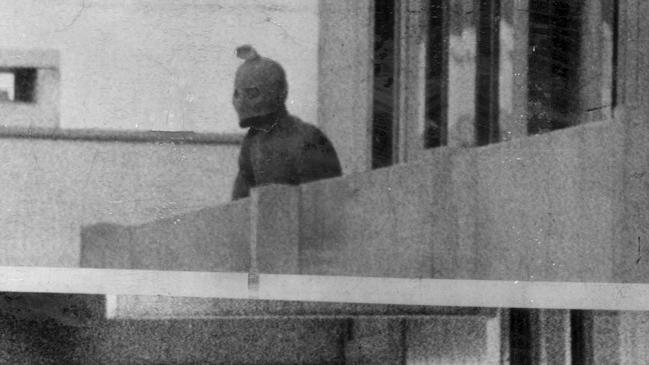
The footage in Kevin MacDonald’s documentary may be familiar but is no less jaw dropping for that. And the efforts to include interviews with as many of the key protagonists even extends to getting the one surviving terrorist, Jamal Al Gashey to talk. The contributions from German police and army officials prosecutes he case for their ineptitude making them effective accomplices to murder.
Some viewers may be uncomfortable with the efforts to dramatise what is already shocking footage (including an era rock soundtrack) and a failure to examine the deeper political issues. But the forensic detail offered of an on-screen drama with a tragically inadequate response allows the viewer to understand how and why the day unfolded as it did.
Pumping Iron (1976)
Those seeking a considered study of the world of competitive bodybuilding will not find it here.
But as a window in to a small part of the pre-worldwide fame of an action hero turned politician and one of the most recognisable men on the planet, it is both fascinating and genuinely entertaining.
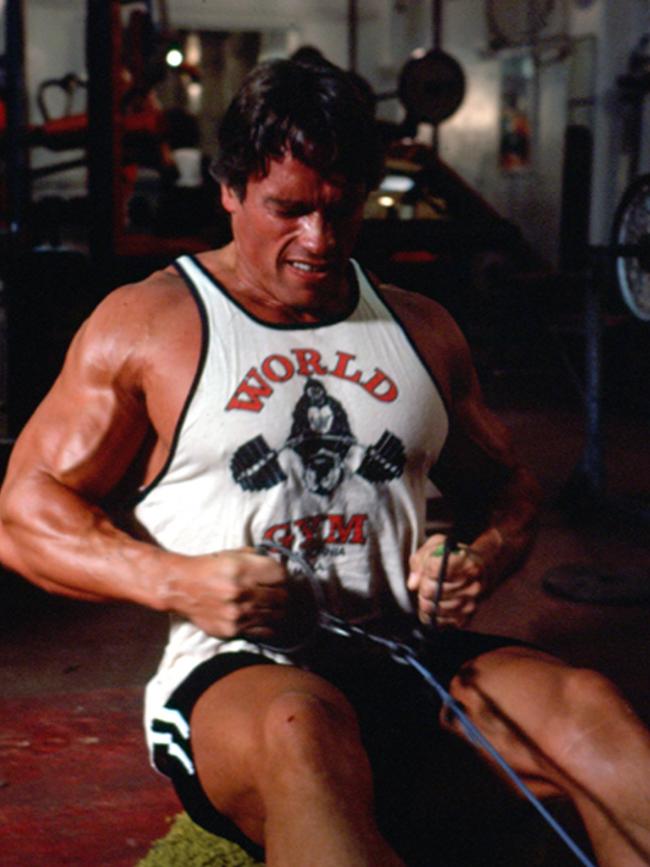
We follow Arnold Schwarzenegger in preparations to defend his Mr Olympia title. Treated to both bountiful shots of his otherworldly physique, playful charm and a willingness to enter the contest that will serve him well in his political life.
Arnie shamelessly tries to undermine his innocent rival Lou Ferrigno (later to become The Hulk on TV), in manner that does not reflect well on him.
But otherwise Pumping Iron lets us get to know a man we are all utterly familiar with from a time when stardom was yet to come his way.
Hoop Dreams (1994)
One of, if not the, most celebrated sporting documentaries ever committed to film. And with good reason.
You’ve probably already seen it. And enjoyed it. But it bears repeat viewings thanks to the sheer humanity of the protagonists and the elegant way in which their story is told.
Arthur Agee and William Gates, both have a dream to play in the NBA. Aged 14 they are selected for scholarships to the prestigious St Joseph college in Chicago.
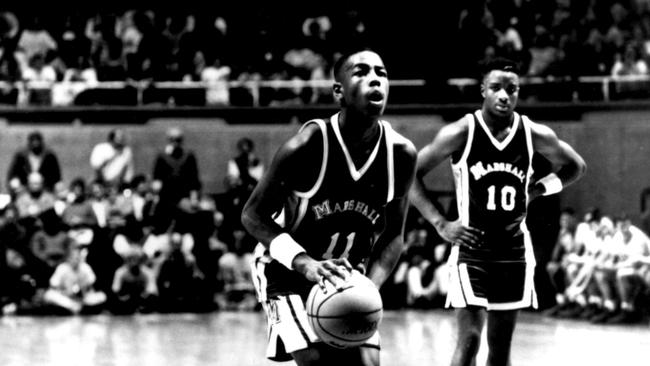
Over the next four years those dreams are explored and tested to the fullest as they navigate their way not just through the system but through their journey from childhood to adulthood complete with numerous trials, hurdles, victories and defeats.
It is a fascinating insight in to how the basketball production line works but even more so the raw human condition.
OJ: Made In America (2016)
Even without viewing this Oscar wining documentary series you may feel you well know the story of Orenthal James ‘OJ’ Simpson.
The trial for the murders of Nicole Brown Simpson and Ronald L. Goldman, for which Simpson was acquitted. The courtroom drama. The glove. The all-American hero gone bad. The glove.
And maybe you do. But this astonishing five-part, 480 minute long piece of work goes well beyond the confines of a courtroom or a freeway car chase.
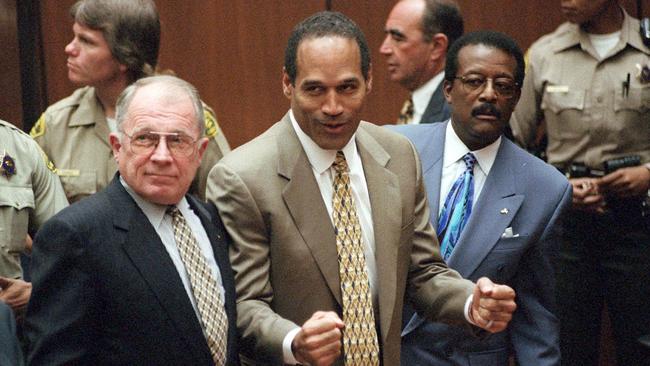
It is perhaps the most ambitious and challenging delve in to the subject of race, domestic violence, celebrity culture, power and wealth that has been put to film.
While at the same time being so eminently watchable and entertaining as to make those long hours rush across the screen.
If you haven’t seen it yet, watch it now. If you’ve seen it already, make time to revisit it in the hours where live sport should have been at some point in the coming months.



To join the conversation, please log in. Don't have an account? Register
Join the conversation, you are commenting as Logout